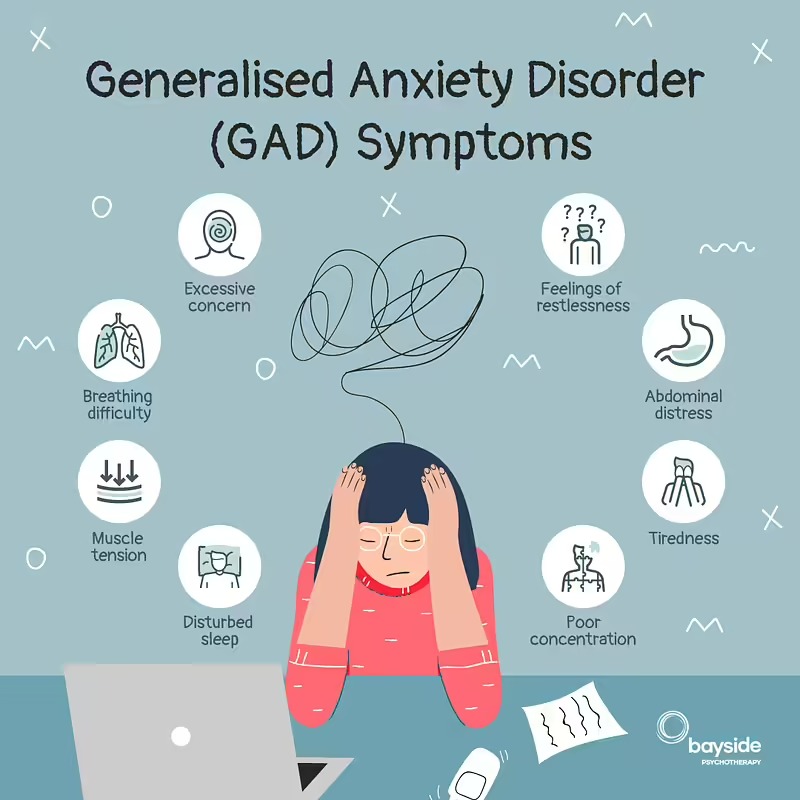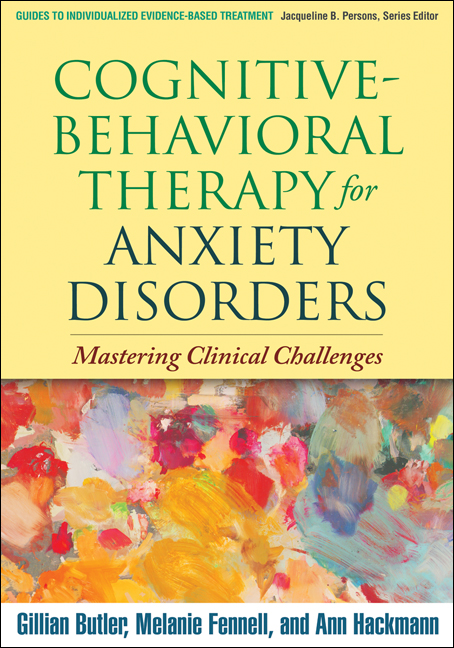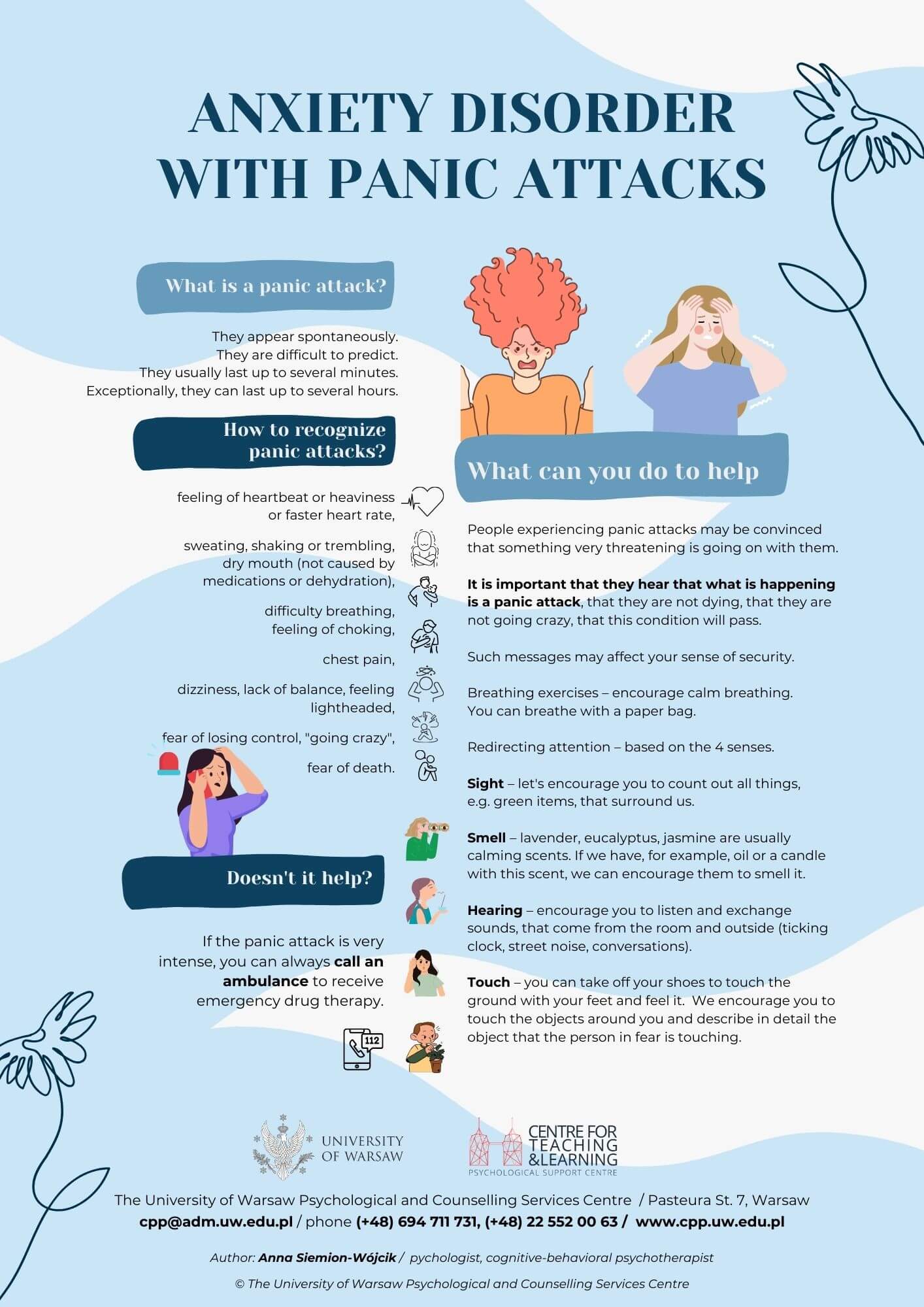Take the first step toward healing with therapy for anxiety solutions
Take the first step toward healing with therapy for anxiety solutions
Blog Article
Checking Out Different Techniques in Counselling for Anxiety Disorder for Enduring Adjustment
When taking on anxiousness problems, it's vital to check out a selection of therapy methods. Each technique uses unique insights and devices to assist you handle your signs and symptoms properly. You could discover that incorporating techniques can generate the ideal outcomes. Understanding the subtleties of these methods is essential to promoting lasting adjustment. What happens if the right combination could launch a new level of psychological well-being for you?
Understanding Anxiety Conditions: A Brief Overview
Anxiety conditions, which influence millions of individuals worldwide, can greatly influence day-to-day life. You might experience frustrating feelings of concern or worry that seem uncontrollable. These sensations can lead to physical signs like a racing heart, sweating, and even wooziness. Usual kinds of anxiousness conditions include generalized anxiousness disorder, panic attack, and social stress and anxiety disorder. Each has special signs, but they all share a propensity to interrupt your regular and relationships.Understanding the root causes of your anxiousness is important. It could come from genes, brain chemistry, or life experiences. Identifying your triggers can aid you manage your responses much better. It is essential to bear in mind that you're not alone in this struggle. Many individuals face similar challenges, and looking for assistance is a solid step towards sensation much better. By learning regarding anxiety disorders, you're currently on the course to understanding and handling your problem more effectively.
Cognitive-Behavioral Therapy: Testing Unfavorable Thought Patterns
In Cognitive-Behavioral Therapy, you'll start by recognizing the negative thought sets off that contribute to your anxiety. You'll work on replacing them with even more favorable alternatives once you acknowledge these ideas. With each other, you'll construct reliable coping approaches to help manage your stress and anxiety in daily situations.
Determining Adverse Idea Triggers

Recognizing the certain triggers behind your negative thoughts can be vital in taking care of anxiety when you come across moments of distress. Beginning by taking notice of circumstances that prompt feelings of concern or worry. Is it a crowded room, an upcoming target date, or a discussion with specific people? Jot down these circumstances in a journal. This will assist you identify patterns in your thinking. Likewise, notice physical sensations that accompany your adverse thoughts, like an auto racing heart or tightness in your upper body. By determining these triggers, you acquire understanding right into what's fueling your anxiety. Comprehending these links is the primary step in testing those ideas and ultimately regaining control over your psychological reactions.
Replacing Thoughts With Positives
Testing adverse idea patterns is an important action in transforming your way of thinking and lowering anxiety. You might commonly find on your own entraped in cycles of self-doubt or tragic thinking. As opposed to letting these thoughts determine your sensations, method changing them with realistic alternatives or favorable affirmations. When you think, "I can't manage this," move it to, "I can take care of difficulties one action at a time." This basic change can greatly impact your mood. Frequently identifying and responding to these unfavorable thoughts aids produce a healthier interior discussion. Keep in mind, it requires time and initiative, but regularly practicing this method can cause long-term adjustment, empowering you to face stress and anxiety with renewed confidence and durability.
Building Coping Strategies Together
Changing adverse ideas is just the start of handling stress and anxiety successfully. To produce enduring modification, you need to develop coping techniques that empower you. Cognitive-Behavioral Therapy (CBT) helps you identify and test those purposeless thought patterns. Together, you and your counselor can discover just how these thoughts impact your feelings and behaviors.Start by developing practical methods, like journaling or mindfulness exercises, that allow you to challenge anxiousness head-on. When you encounter your anxieties slowly, you'll learn to respond differently.

Mindfulness and Acceptance-Based Approaches: Cultivating Present-Moment Recognition
As you browse the complexities of anxiousness, integrating mindfulness and acceptance-based strategies can substantially enhance your capacity to cultivate present-moment recognition. By focusing on the below and now, you'll locate that you can observe your ideas and feelings without judgment (Counseling services for anxiety). This method aids you acknowledge your stress and anxiety without really feeling overwhelmed by it.Engaging in mindfulness exercises, such as deep breathing, body scans, or assisted reflections, allows you to ground yourself in your existing experience. Acceptance-based strategies motivate you to accept your emotions as opposed to battle versus them. When you approve your feelings, they lose their power over you.Incorporating these techniques into your day-to-day routine can transform just how you react to anxiety. You'll create strength and discover to navigate demanding circumstances with greater convenience. Eventually, cultivating present-moment recognition lays the foundation for enduring modification, equipping you to lead a much more satisfying life
Exposure Therapy: Facing Concerns Slowly
Exposure therapy assists you confront your worries in a gradual means, making it less overwhelming. You'll discover strategies to encounter anxiety-provoking situations step by action, while additionally building coping techniques to manage your reactions. This approach encourages you to take control and lower anxiousness gradually.
Progressive Exposure Techniques

When click site dealing with anxiety, progressively facing your anxieties can be an effective way to restore control. This method, known as steady direct exposure, entails gradually exposing on your own to the scenarios or things that cause your anxiety. Start with much less challenging situations and slowly function your way as much as more tough ones. If you're afraid of public talking, you might start by talking in front of a mirror, then advance to sharing ideas with a buddy, and at some point address a little team. Each step assists desensitize you to the fear, developing your confidence continue reading this over time. Bear in mind, it's necessary to speed on your own and celebrate little triumphes as you move via this process, reinforcing your capacity to manage anxiousness properly.
Building Coping Methods
Structure reliable coping strategies is vital for taking care of anxiousness, especially as you confront your worries gradually - Counseling services for anxiety. One powerful method is exposure therapy, where you start by facing your worries in a controlled way. Start with much less daunting situations and slowly work your way up to more challenging scenarios. This gradual direct exposure helps desensitize you to anxiety triggers, making them much less overwhelming.Incorporate leisure strategies, such as deep breathing or mindfulness, to relax your mind throughout exposure. Track your progress, celebrating little triumphes along the way to increase your confidence. Remember, it's alright to take your time; the objective isn't excellence but consistent renovation. By building these methods, you'll encourage on your own to browse anxiousness and embrace life much more fully
Psychodynamic Treatment: Revealing Origin Reasons of Anxiousness
Psychodynamic therapy explores the unconscious mind, revealing the origin of your stress and anxiety. By analyzing your ideas, feelings, and previous experiences, this strategy aids you discover underlying disputes and unsettled issues that may add to your current anxiousness. You'll collaborate with a therapist to check out childhood experiences, view it partnerships, and psychological patterns that shape your responses today.As you obtain insight into these much deeper layers of your subconscious, you'll begin to identify how previous events affect your existing habits. This understanding can lead to catharsis, enabling you to process emotions you could have suppressed.Through the restorative partnership, you can likewise determine defense reaction that may have developed with time, using a clearer path to transform. Ultimately, psychodynamic therapy equips you with the devices to address your stress and anxiety at its core, advertising enduring transformation in your psychological well-being.
Integrative and Alternative Methods: Incorporating Techniques for Greater Effectiveness
Incorporating different healing techniques can boost your journey towards taking care of stress and anxiety better. By incorporating aspects from cognitive-behavioral therapy, mindfulness methods, and holistic methods, you can produce an individualized technique that resolves your special requirements. For instance, you could utilize cognitive-behavioral methods to challenge negative thought patterns while incorporating mindfulness workouts to ground on your own in today moment.Additionally, discovering holistic techniques such as yoga exercise or reflection can advertise leisure and lower anxiety signs and symptoms. This blend allows you to create greater self-awareness and resilience.Experimenting with these diverse techniques can aid you discover what resonates most with you. Bear in mind, it has to do with finding a synergy that functions, instead of staying with a solitary method. This integrative strategy not just provides prompt relief however likewise cultivates long-term skills for taking care of anxiousness, empowering you to redeem control over your life.
The Role of Support Equipments: Structure Durability Through Link
While it may appear that managing stress and anxiety is a solitary journey, having a strong support group can play a necessary function in your durability. Surrounding on your own with understanding friends, family members, or support system develops a safe area where you can freely share your sensations and experiences. You advise on your own that you're not alone in this struggle.These partnerships use encouragement and can supply practical coping methods that have worked for others when you attach with others. It's also a possibility to gain point of view; buddies can aid you see situations in a different way, reducing feelings of isolation.Moreover, psychological assistance fosters a feeling of belonging, which can significantly reduce stress and anxiety symptoms. By leaning on your support system, you can construct strength and tackle difficulties better. Keep in mind, getting to out for help signifies stamina, and it can make all the distinction in your journey toward handling anxiousness.
Frequently Asked Concerns
What Are the Usual Symptoms of Anxiousness Conditions?
You may experience restlessness, exhaustion, problem focusing, irritation, muscle tension, and rest disturbances. Physical signs can consist of rapid heart beat, sweating, and shivering. Recognizing these indications early can assist you seek proper assistance and treatment.
The Length Of Time Does Therapy Usually Last for Anxiousness Conditions?
Treatment for stress and anxiety problems generally lasts anywhere from a couple of weeks to a number of months. It truly depends upon your individual needs, progress, and the techniques your specialist makes use of to assist you manage your anxiety efficiently.
Can Medication Be Used Alongside Treatment for Anxiousness?
Yes, medicine can absolutely be utilized alongside therapy for anxiousness. Incorporating both techniques usually boosts therapy efficiency, helping you manage symptoms while exploring underlying issues via therapy (Counseling services for anxiety). Constantly consult your healthcare supplier for personalized recommendations
Exist Self-Help Approaches for Managing Anxiety?
Yes, there are numerous self-help methods for managing stress and anxiety. You can practice mindfulness, participate in routine exercise, keep a well balanced diet plan, establish a regular, and make use of deep breathing methods to help in reducing anxiousness signs and symptoms efficiently.
How Do I Know if I Required Professional Assistance for Anxiety?

Report this page